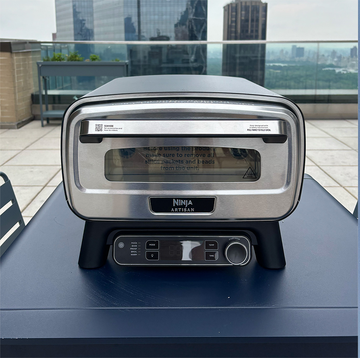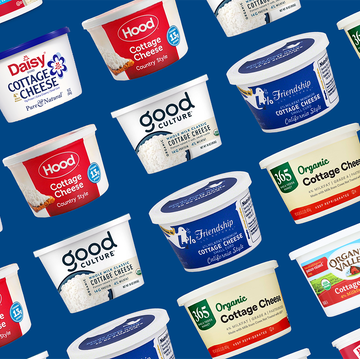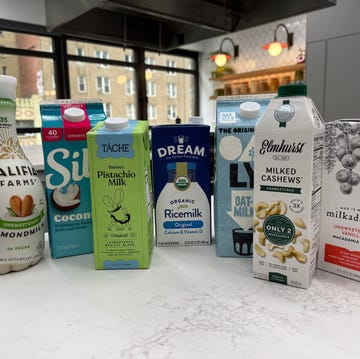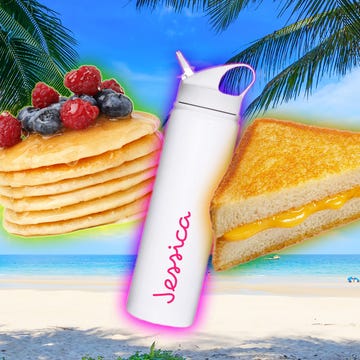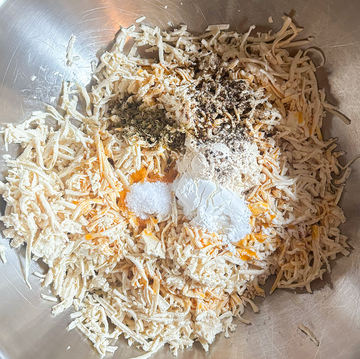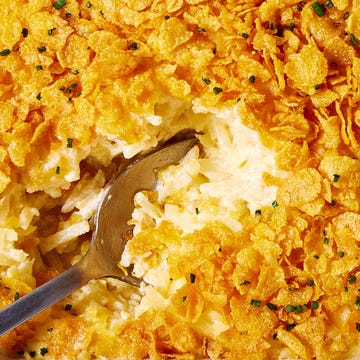Summer is here, and it's hot. If the temperature seems a bit hotter than average, you're not wrong. In June, the NOAA National Centers for Environmental Information reported that it's a "virtual certainty" that 2025 is predicted to be one of the top 10 hottest years since records began in 1850. And there's a 95% chance it'll be the second or third hottest year. Given the heat, hydration is crucial—but there's a lot more to it than just drinking water.
"I just think that a lot of people might misunderstand how to hydrate and they're walking around with gallons of water and chugging that," Amy Stephens, a dietitian
who specializes in sports nutrition and eating disorders, says. "So you can't just take water; you need more than just water to hydrate your body."
To learn more about staying hydrated in the heat, Lauren Manaker, R.D.N., and Amy Stephens, R.D.N., share their tips.
Learn The Symptoms Of Dehydration
"Everyone has a different amount of fluids that their body needs and a different amount that they lose in warmer conditions," Stephens says.
Signs and symptoms of dehydration can include lightheadedness, dizziness, moodiness, irritability, fatigue, lack of appetite, and, especially for athletes, stomach or leg cramps. Overhydration, a.k.a. hyponatremia, occurs when the sodium in your blood is too low. It can happen to people who drink a lot of water, which dilutes the sodium in the blood. It can also affect athletes, such as long-distance runners, who lose a high volume of electrolytes through sweating and then drink large amounts of water, further diluting the sodium.
So, how do you know if you're dehydrated? Your urine. Stephens says that you should be urinating every 1 to 2 hours, and the urine should be pale yellow. "If your urine is absent for many hours, then you need to drink some fluids."
Understand How Electrolytes Work
Just because it's hot out doesn't mean you need to consume lots of sports drinks or hydration packs. Some of the main electrolytes in the body are sodium, potassium, magnesium, calcium, and chloride. They play a crucial role in several bodily functions, such as fluid balance, and are lost through sweat, diarrhea, and vomiting.
We get electrolytes through the food we eat, and electrolyte supplements are only necessary if we're losing more electrolytes than we're getting through food.
"If you are staying inside in an air-conditioned space and you're not even sweating, you do not need electrolytes. Electrolytes are only used if you're sweating and you're replacing that fluid loss with water," Stephens says.
If you're in a dry heat environment and aren't sure if you're sweating, but your body is still losing water, you likely need to rehydrate with electrolytes and fluids. If you're sweating a lot on your commute to the office, she said a salty snack like pretzels would suffice.
Sip On Water Throughout The Day—And Before You're Thirsty
"By the time you feel thirsty, you're already a bit dehydrated," Manaker says. To avoid this, she advises sipping water throughout the day. And if you tend to forget to drink water until you're parched, she recommends setting alarms or using hydration apps to remind yourself to hydrate.
Keep A Regular Eating Schedule
Appetite can be one of the first things to go when it's hot out. "Not eating just worsens the situation," Stephens says.
She recommends sticking to a regular eating plan and choosing lighter foods that are lower in fat and easier to digest. "Fried foods are definitely harder to digest and take a lot more energy from your body," Stephens says. "So if you're a little dehydrated, they can give you a really bad stomachache."
"It's not just about chugging water. It's about getting in some of those electrolytes, whether it's through food or through other sources," she adds.
Eat Hydrating Foods
Maintaining a balance of water and electrolytes is essential for proper hydration. Fruits and vegetables are among the most hydrating foods because they're composed of water and electrolytes. "Watermelon, peaches, apples, berries, and then vegetables like lettuces, tomatoes, carrots—those are all awesome and very hydrating, and they have electrolytes," Stephens says.
Manaker calls watermelon "nature's sports drink," as it's 92% water and also contains electrolytes like potassium and magnesium.
Put your farmers' market produce to use while staying cool with gazpacho, a crunchy cucumber salad, watermelon feta salad, or an easy Greek Salad.
Avoid Alcohol
A frozen drink like a strawberry daiquiri might seem like it'll quench your thirst, but it won't do much for your hydration. Stephens says that alcohol actually accelerates dehydration and electrolyte imbalance. "It affects the way the kidneys function, and it excretes extra sodium and electrolytes, so it worsens dehydration."
Additionally, Mankaker adds that being under the influence can also make some people forget to drink water.
With all of the zero-proof drinks on the market now, try a non-alcoholic mocktail. Here are dozens of mocktail recipes that still scream summer, including a creamy virgin piña colada, refreshing watermelon agua fresca, and blackberry virgin mojito.
And if you're enjoying drinks in the heat—or anytime of year—remember to drink water and eat foods rich in electrolytes.




